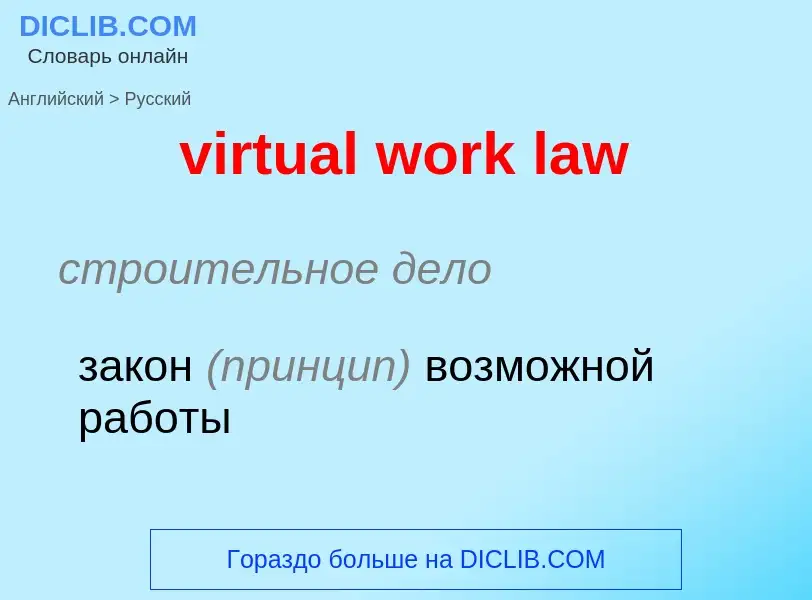Traducción y análisis de palabras por inteligencia artificial ChatGPT
En esta página puede obtener un análisis detallado de una palabra o frase, producido utilizando la mejor tecnología de inteligencia artificial hasta la fecha:
- cómo se usa la palabra
- frecuencia de uso
- se utiliza con más frecuencia en el habla oral o escrita
- opciones de traducción
- ejemplos de uso (varias frases con traducción)
- etimología
virtual work law - traducción al ruso
строительное дело
закон (принцип) возможной работы
Definición
Wikipedia
In the context of labor law in the United States, the term "right-to-work laws" refers to state laws that prohibit union security agreements between employers and labor unions which require employees who are not union members to contribute to the costs of union representation. Unlike the right to work definition as a human right in international law, U.S. right-to-work laws do not aim to provide a general guarantee of employment to people seeking work but rather guarantee an employee's right to refrain from paying or being a member of a financially supporting collective bargaining organization (i.e. labor union).
The 1947 federal Taft–Hartley Act governing private sector employment prohibits the "closed shop" in which employees are required to be members of a union as a condition of employment, but allows the union shop or "agency shop" in which employees pay a fee for the cost of representation without joining the union. Individual U.S. states set their own policies for state and local government employees (i.e. public sector employees). Twenty-eight states have right-to-work policies (either by statutes or by constitutional provision). In 2018, the U.S. Supreme Court ruled that agency shop arrangements for public sector employees were unconstitutional in the case Janus v. AFSCME.

